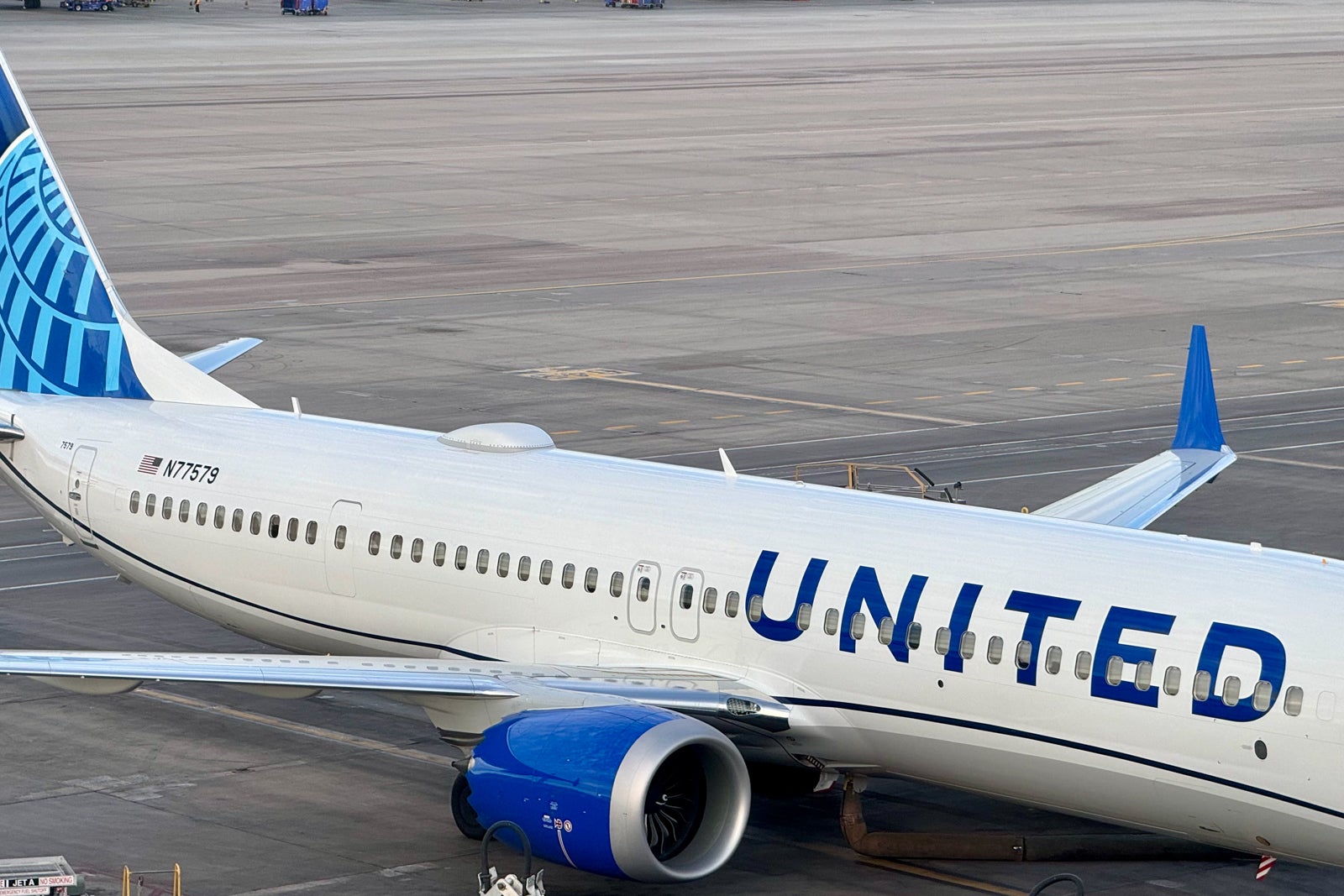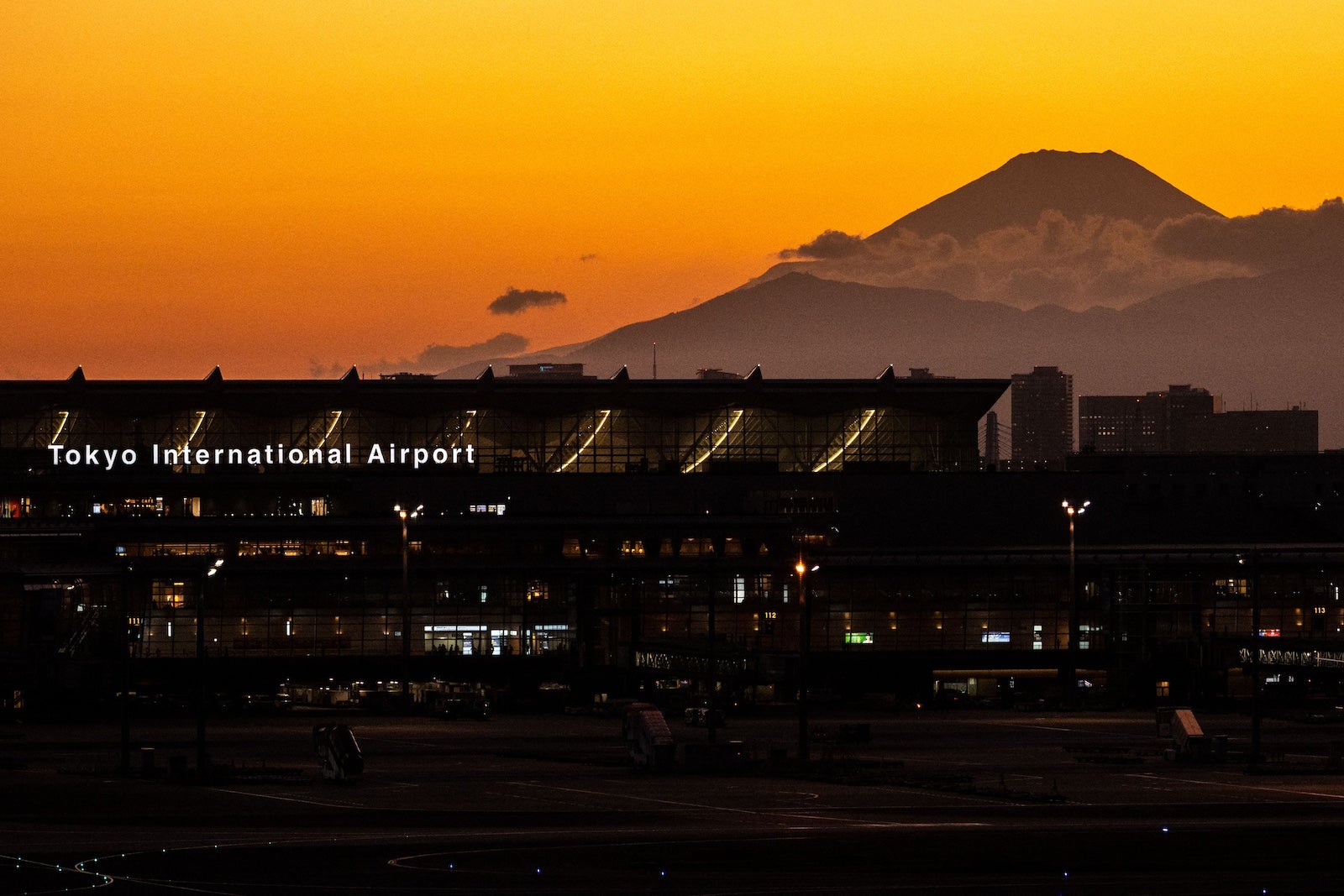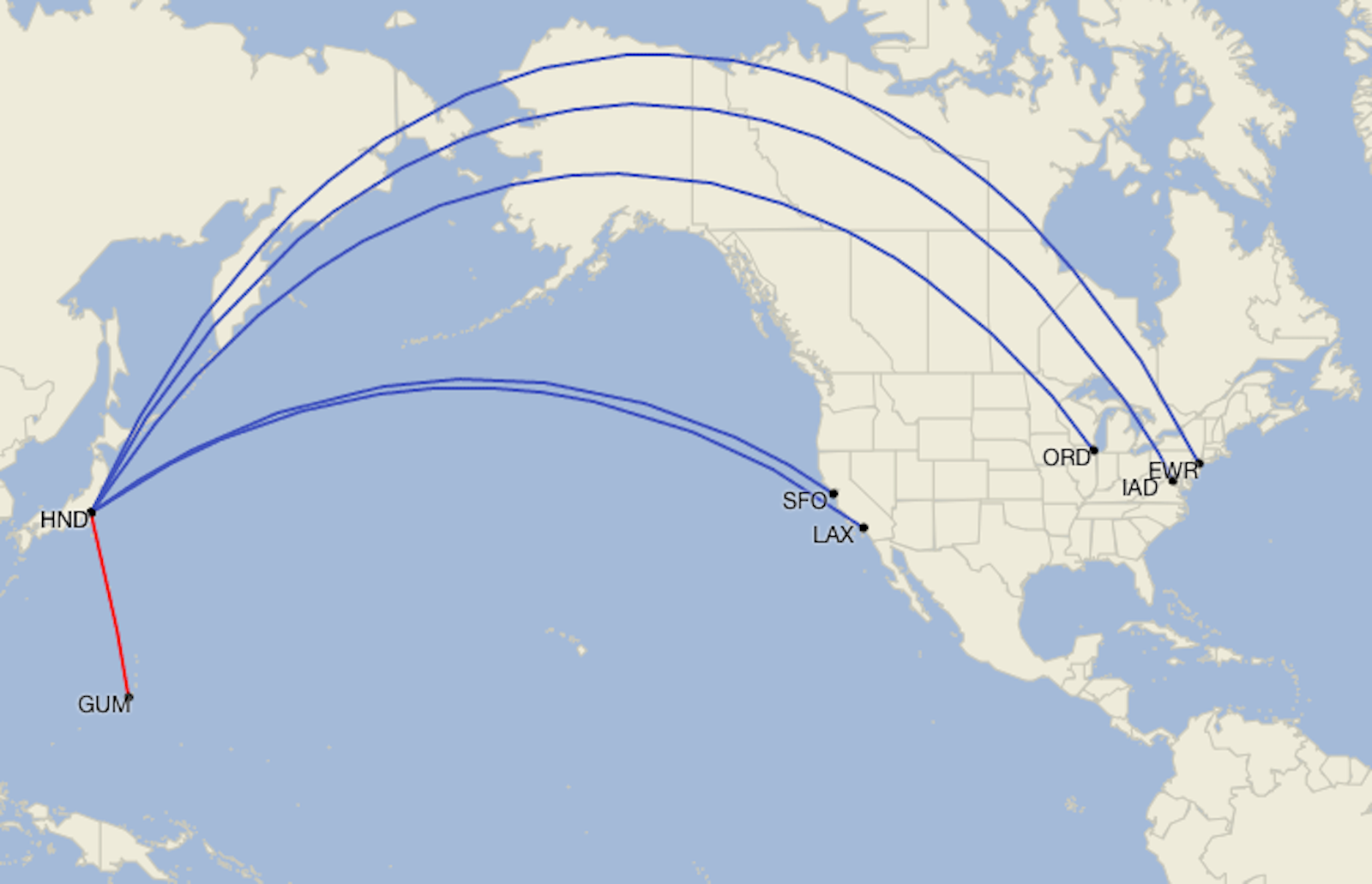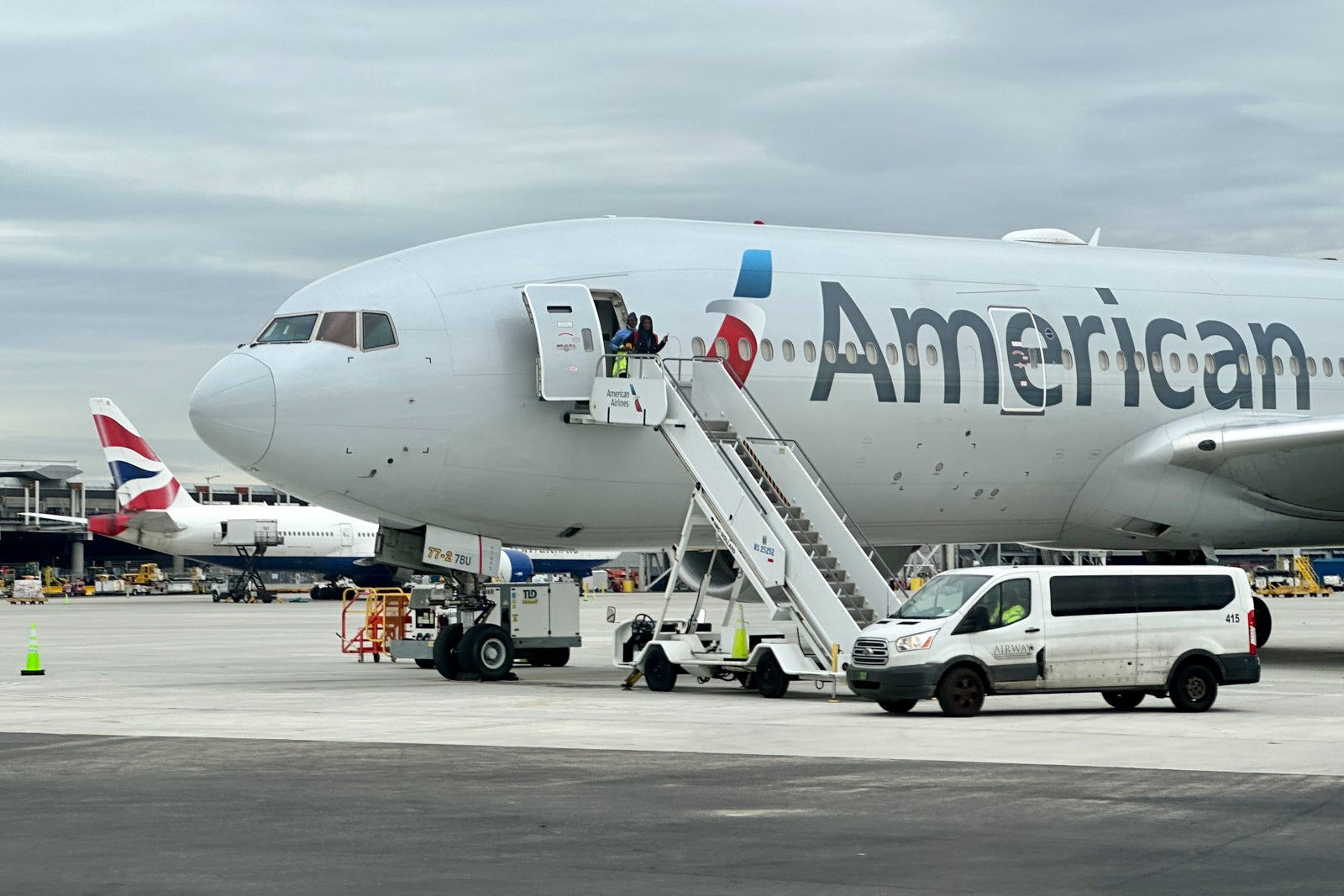United and American announce start dates for new Tokyo Haneda service
This spring, United Airlines plans to launch a new route to Tokyo’s Haneda Airport (HND).
Starting May 1, the Chicago-based carrier will operate daily Haneda service from Guam, the airline said Friday, citing approval from the U.S. Department of Transportation.
Want more airline-specific news? Sign up for TPG’s free biweekly Aviation newsletter.
The announcement comes a day after American Airlines revealed a June 28 start date for its route to Tokyo Haneda from New York’s John F. Kennedy International Airport (JFK) — also following formal DOT approval.
Tickets for both routes will go on sale almost right away: United will open up booking for its Guam-to-Tokyo route Friday night. American will open booking for its new JFK-to-Haneda route Sunday.
A fight for slots at Haneda
It’s been something of a long, winding path for both airlines announcing these new Tokyo routes.
Space is tight at Tokyo’s Haneda, which is closer to the city center than Narita International Airport (NRT). As with airports in the New York area and Ronald Reagan Washington National Airport (DCA), there are a finite number of flights allowed at Haneda; it is governed by rules known as slots.
Japanese authorities allocate a set number of these slots for U.S. airlines, and the U.S. DOT decides which carriers to distribute them to. There was strong competition among carriers for these. United had hoped to win a new nonstop to Haneda from Houston’s George Bush Intercontinental Airport (IAH). Instead, the DOT awarded those slots to American for its new JFK service, TPG reported last month. Formal approval came last week, the airline said.
United was successful, though, in its bid to take over nighttime slots at Haneda. It argued those slots had been under-used by Hawaiian Airlines since the pandemic began.

Daily Newsletter
Reward your inbox with the TPG Daily newsletter
Join over 700,000 readers for breaking news, in-depth guides and exclusive deals from TPG’s experts
As of May, Hawaiian will operate nonstops from Daniel K. Inouye International Airport (HNL) in Honolulu to both Haneda and Narita, per Cirium.
“[W]e’re always looking for opportunities to give our customers more choice and strengthen links between countries. This route — connecting Tokyo’s most convenient airport with our unique Guam hub – accomplishes just that,” United’s senior vice president of global network planning, Patrick Quayle, said in a statement Friday announcing the news. “I appreciate the support of the Department of Transportation in recognizing the importance of this route to our customers and stakeholders.”
United’s Guam-to-Tokyo route
United plans to operate its service from Guam International Airport (GUM) to Haneda with a Boeing 737-800 aircraft. It seats 166 customers, including 16 in domestic first-class-style recliner seats.
Here’s how the itinerary shakes out:
- GUM-HND: Departs at 7 p.m., arrives at 10 p.m. the same day
- HND-GUM: Departs at 11:55 p.m., arrives at 4:45 a.m. the next day
This new route is just United’s latest expansion in the Pacific.
It already operates 32 weekly flights between Guam and Narita.
Come May, here’s what United’s route map out to Haneda will look like, per Cirium. It includes nonstops to all of its U.S. hubs save for Houston and Denver International Airport (DEN), from which it flies to Narita.
American’s new Tokyo service from JFK
American’s flights between New York and Haneda launch June 28 with a Boeing 777-200 aircraft.
Here’s what the schedule looks like:
- JFK-HND: Departs at 11:25 a.m., arrives at 2:30 p.m. the next day
- HND-JFK: Departs at 4:30 p.m., arrives at 4:35 p.m.
American sees this route as a complement to the existing JFK-to-Haneda service offered by its Oneworld alliance and joint venture partner Japan Airlines. It now operates the route with a new Airbus A350-1000 aircraft.
Meanwhile, American continues to operate one daily nonstop to Haneda from Dallas Fort Worth International Airport (DFW) and two daily trips from Los Angeles International Airport (LAX).
Related reading:










